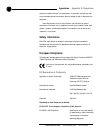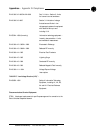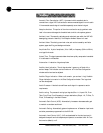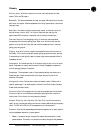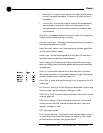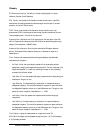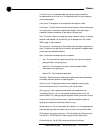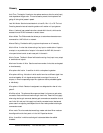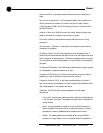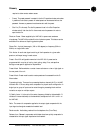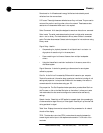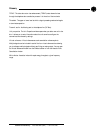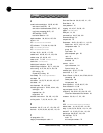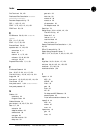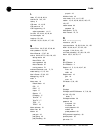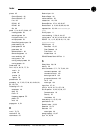
Glossary
156
Technical Services Group ~ 1-800-283-5936 (USA) ~ 1-801-974-3760
Noise Cancellation
A process through which ambient noise is removed from a
signal.
Non-linear processing (NLP)
NLP increaess the power of echo cancellation for
difficult acoustical environments. NLP has four settings: Soft (6dB), Medium
(12dB), Aggressive (18dB), and Off. NLP settings are found in the Acoustic Echo
Cancellation window.
Number of Open Mics (NOM)/Constant Gain Mode
Adjusts the output level
based on the number of mics gated on and routed to an output.
O–R buses
These four audio buses communicate NOM count and mic mixing
parameters.
Off Attenuation
The amount of level reduction a microphone is given when the
microphone is not gated on.
PA Adaptive Mode
The XAP 400 recognizes how much loudspeaker audio is
picked up by the microphones and then uses this level as the new ambient level when
audio is present at the power amplifier. This prevents loudspeaker audio from gating
on a microphone, while still allowing people in the room to gate on microphones as
they speak.
PA Adapt/AEC Reference
This G-Ware setting determines which output (typically
for a loudspeaker) is used as a reference for an input.
PA Adapt/AEC Reference bus
This bus carries reference information making it
possible for an input to reference an output on another linked unit.
Parametric Equalizer (PEQ)
A multi-band variable equalizer with control of
gain, center frequency, and bandwidth. A properly configured PEQ enables the XAP
400 to offset speaker or room acoustic deficiencies.
Passwords
The XAP 400 features several passwords to protect system
configuration.
• Front panel
The front panel password prevents a user from changing settings
in the front panel LCD menus. The password can be set from the front panel or
through G-Ware.
• Macro
The macro password is created in the Unit Properties window and
makes it possible to lock certain macros. A locked macro can be run without
the password. However, a password must be entered to edit the macro.
• Modem
The modem password can be created serially using the MPASS
command or through G-Ware in the Unit Properties window. The password is



